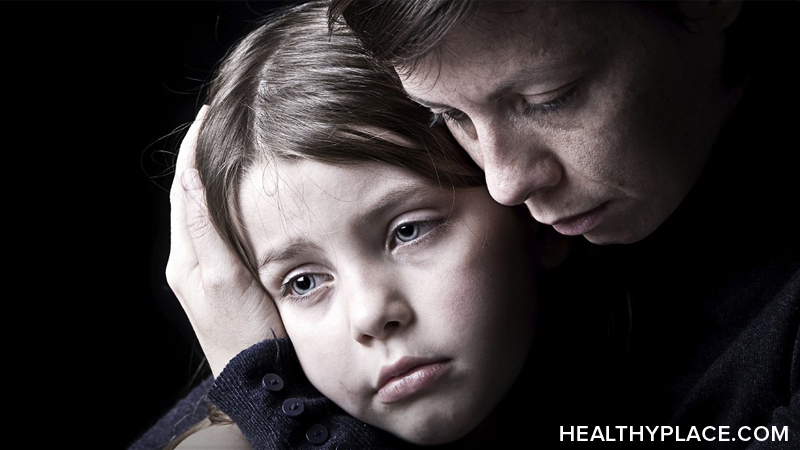Childhood Depression: How to Help a Depressed Child

Do you have a depressed child? Advice for parents to help a child with depression deal with childhood depression.
A parent writes: What advice do you have for a depressed child? We try distraction and keeping to routines but they don't work very well.
Parenting a Child with Depression Can Be Complicated
One of the more heartbreaking challenges of parenting is when depression settles into the emotional life of a child. Despite the presence of much to be happy about, some children suffer from a sagging spirit, self-deprecating attitude, and even thoughts of suicide. Parents react to this painful reality with a variety of feelings and perceptions of their own, some helpful and others potentially harmful.
Complications arise when parents misinterpret the meaning of events and operate under false beliefs about the source of and solutions to the problem.
Depression Help for Parents with a Depressed Child
If your child may be caught in the throes of depression, consider the following coaching tips:
Empathy is the key to keeping the doors of discussion open. For parents to be able to help, children must be open to it. Most depressed kids don't want to be "talked out" of their feelings, "cheered up," nor blamed for "giving into them." These overtures are certain to place distance and distrust between you and your child. Stepping into their experience requires doing a lot of active listening in which the parent mirrors back how the child is likely feeling: "It must be hard to tell yourself that you might have a good time if you accept the invitation," is one way to empathize with a depressed child's hesitation to pursue a social opportunity.
Consider the possibility that your depressed child is hiding their sadness from you. It's not uncommon for depressed children to "put on a happy face" for parents. The ups and downs within family relationships may have convinced them that they must hide their despair. Some parents send clear signals to children about what feelings and topics are acceptable to discuss and which are not. The emotional costs of this narrowing of the relationship are substantial. If this is the case, attempt a course correction with the following, "I know about your sadness but you usually don't talk to me about those feelings. Maybe I've given you the idea that you can't tell me about the bad times but I do want to hear about them."
Reduce and maintain expectations as circumstances warrant. Some parents have particular trouble with making allowances for depression. They mistakenly believe that they should apply the same rules, expectations, and consequences regardless of the presence of serious emotional pain in their child. This sets the stage for further disengagement, an undesirable outcome when raising a depressed child. Temporarily bending the rules, allowing exceptions, and otherwise suspending usual consequences may be entirely indicated. Consistency does not have to be rigidly maintained. Circumstances must be factored into parental decision-making.
Be prepared with words of clarity and reason to help them stem the rising tide of depression. As children succumb to despair, their self-perception and view of the world around them grows dark and negative. Extreme statements and/or actions may shake a parent's own security level. It can be especially hard to find your own voice of reason when your child is clearly lacking one. Explain how sadness affects a lot of people by making them believe false things about themselves. Emphasize that these feelings will pass and they will again have a clear view of themselves and their life. Suggest that they don't isolate themselves and encourage them to keep talking out their feelings. Do not hesitate to contact their mental health provider for further advice about how to help your child cope with depression.
APA Reference
Richfield, S.
(2019, August 6). Childhood Depression: How to Help a Depressed Child, HealthyPlace. Retrieved
on 2026, March 5 from https://www.healthyplace.com/parenting/the-parent-coach/childhood-depression-how-to-help-a-depressed-child



